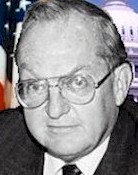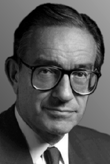| News from September 26-30, 2002 |
 Rep. Berman (at right) said in his opening statement that
while there have been "some truly outrageous press attacks", the basic
premise of the bill is "that copyright owners should be able to use
reasonable, limited self help measures to thwart rampant, notorious P2P
piracy."
Rep. Berman (at right) said in his opening statement that
while there have been "some truly outrageous press attacks", the basic
premise of the bill is "that copyright owners should be able to use
reasonable, limited self help measures to thwart rampant, notorious P2P
piracy."
 Rep. Howard Coble (R-NC), the outgoing
Chairman of the House Judiciary
Committee's (HJC) Courts, Internet and Intellectual Property Subcommittee,
said during the floor debate that "This conference report contains
intellectual property provisions which are very significant, such as PTO
reauthorization; the patent reexamination reform proposal; intellectual property
technical amendments; the TEACH Act, regarding the distance education program;
and the Madrid protocol implementation concerning the international registration
of trademarks. Our subcommittee of the Committee on the Judiciary, Mr. Speaker,
has worked a long time on these matters, and in the case of the Madrid protocol
for 8 years. This is much needed reform that will benefit the intellectual
property owners of the intellectual property community, and the American public
as well."
Rep. Howard Coble (R-NC), the outgoing
Chairman of the House Judiciary
Committee's (HJC) Courts, Internet and Intellectual Property Subcommittee,
said during the floor debate that "This conference report contains
intellectual property provisions which are very significant, such as PTO
reauthorization; the patent reexamination reform proposal; intellectual property
technical amendments; the TEACH Act, regarding the distance education program;
and the Madrid protocol implementation concerning the international registration
of trademarks. Our subcommittee of the Committee on the Judiciary, Mr. Speaker,
has worked a long time on these matters, and in the case of the Madrid protocol
for 8 years. This is much needed reform that will benefit the intellectual
property owners of the intellectual property community, and the American public
as well."
 Sen. Baucus (at
right) reviewed the creation of the WTO dispute settlement process. He said that
"During the Uruguay Round negotiations, the U.S. fought for and achieved a
system of binding dispute resolution. We also fought for and won a deferential
standard of review for trade remedy cases. This standard requires dispute
settlement panels to defer to national authorities when they make reasonable
interpretations of fact and WTO provisions. It was supposed to apply to all
trade remedy cases, but it has been improperly narrowed. And even where
notionally applied, it has been disrespected. As a nation with trade laws that
are transparent, fair, and consistent with the express language of WTO
agreements, we thought we had little to fear and much to gain from a system that
would require our trading partners to bring their practices into compliance with
WTO standards."
Sen. Baucus (at
right) reviewed the creation of the WTO dispute settlement process. He said that
"During the Uruguay Round negotiations, the U.S. fought for and achieved a
system of binding dispute resolution. We also fought for and won a deferential
standard of review for trade remedy cases. This standard requires dispute
settlement panels to defer to national authorities when they make reasonable
interpretations of fact and WTO provisions. It was supposed to apply to all
trade remedy cases, but it has been improperly narrowed. And even where
notionally applied, it has been disrespected. As a nation with trade laws that
are transparent, fair, and consistent with the express language of WTO
agreements, we thought we had little to fear and much to gain from a system that
would require our trading partners to bring their practices into compliance with
WTO standards."
 He added, "a half century from now, the
goods and services that we produce and consume will, to a significant extent,
reflect applications of insights not yet formed or even imagined. Could the
residents of sophisticated eighteenth century London, prior to Sir William
Herschel's demonstration of invisible radiation, even contemplate the existence
of radio waves that would reach around the world? I still have trouble grasping
how the shortwave transmissions of the BBC travel thousands of miles to find
their way to my bedroom at night to be picked up by my transistor shortwave
radio."
He added, "a half century from now, the
goods and services that we produce and consume will, to a significant extent,
reflect applications of insights not yet formed or even imagined. Could the
residents of sophisticated eighteenth century London, prior to Sir William
Herschel's demonstration of invisible radiation, even contemplate the existence
of radio waves that would reach around the world? I still have trouble grasping
how the shortwave transmissions of the BBC travel thousands of miles to find
their way to my bedroom at night to be picked up by my transistor shortwave
radio."